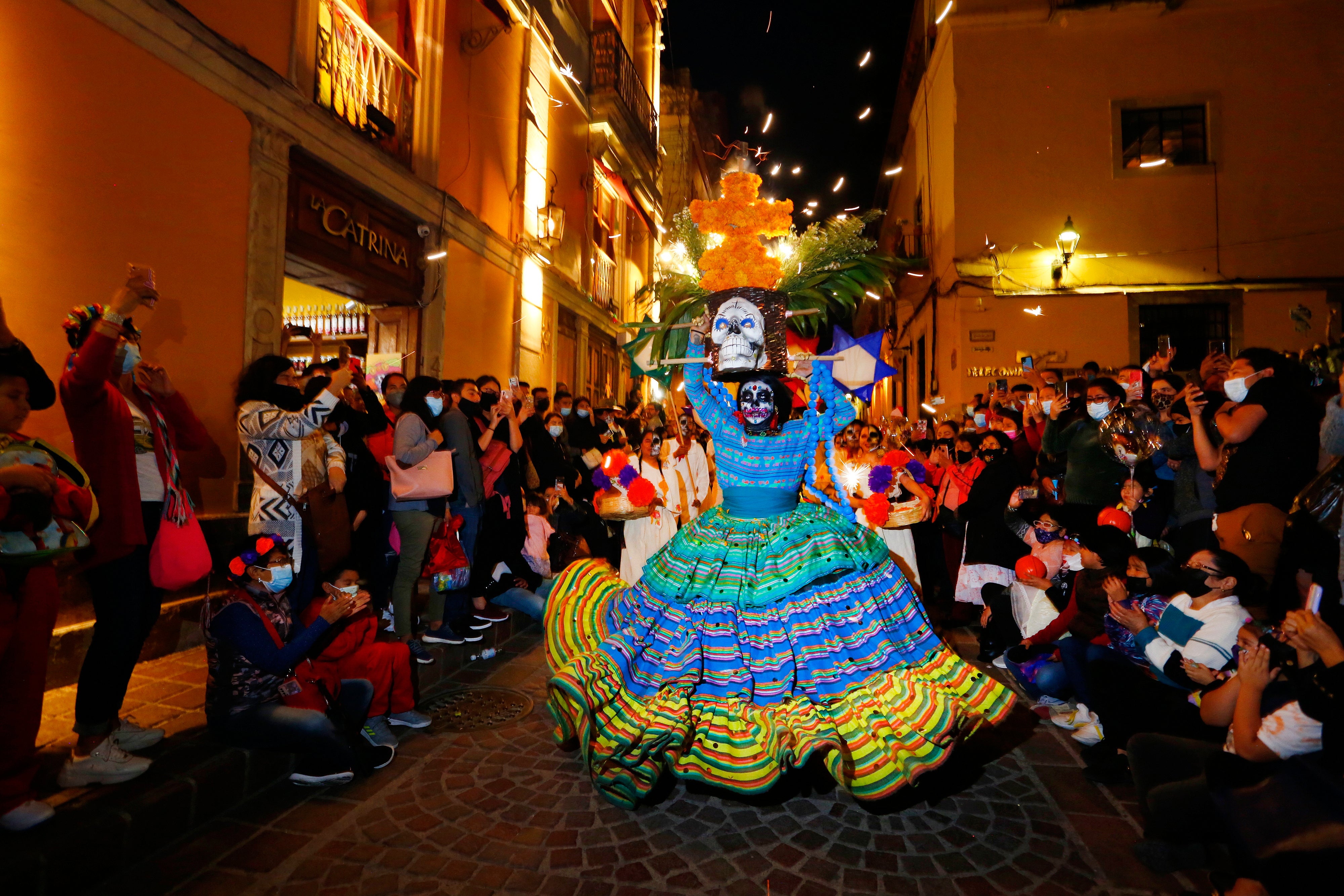The Independent's journalism is supported by our readers. When you purchase through links on our site, we may earn commission.
From ofrendas to pan dulce, how to celebrate Day of the Dead with your loved ones
The traditional Mexican holiday Día de los Muertos, or Day of the Dead, takes place on the first and second of November
Your support helps us to tell the story
From reproductive rights to climate change to Big Tech, The Independent is on the ground when the story is developing. Whether it's investigating the financials of Elon Musk's pro-Trump PAC or producing our latest documentary, 'The A Word', which shines a light on the American women fighting for reproductive rights, we know how important it is to parse out the facts from the messaging.
At such a critical moment in US history, we need reporters on the ground. Your donation allows us to keep sending journalists to speak to both sides of the story.
The Independent is trusted by Americans across the entire political spectrum. And unlike many other quality news outlets, we choose not to lock Americans out of our reporting and analysis with paywalls. We believe quality journalism should be available to everyone, paid for by those who can afford it.
Your support makes all the difference.The start of November marks a time when people in Mexico and certain parts of Latin America celebrate the Day of the Dead – a day dedicated to celebrating the lives of those who have passed away.
The holiday is a reunion of sorts, as some families host festivities with dancing, music, and creating ofrendas – which translates to “altars” in English – to honor those who have passed.
“It’s a celebration about honoring and keeping alive the memory of your loved ones and believing that one day you’ll be together,” Deisy Marquez, founder of the Día y Noche de los Muertos event, explained to Today. “On that one day, even though you’re alive, that realm opens up and you’re together on the Day of the Dead.”
Ofrendas are constructed with several layers on top of tables, typically draped with a serape. The top layer represents heaven while the base layer represents earth, according to NPR. Families set up ofrendas either at home or in public spaces – such as schools, libraries, or mourning spaces like cemeteries – and decorate them with photos or offerings of food that their ancestors loved when they were alive. It’s tradition for people to put toys on ofrendas honoring children who have passed, and leave out bottles of tequila, mezcal, or agave wine for adults.
In addition to favorite dishes and memorabilia, ofrendas are also decorated with calaveras – known as sugar skulls in English – as well as paper mache banners, orange marigolds, and candles. According to National Geographic, candles are lit so an ancestor’s spirit can find its way back to their relatives and hear their kind words.

Marigolds – also referred to as cempasúchil or el flor de muerto, which translates to “flower of the dead” in English – are similarly believed to be able to guide the souls of the dead to the ofrendas, due to their bright petals and strong scent.
Beyond offerings to the dead, it’s common to gift friends and family members calaveras and pan de muerto, a special version of traditional Mexican sweet bread. The bread is a type of sweet roll often decorated with sugar and frosting, in a design evocative of twisted bones. Meanwhile, the calaveras are decorated with colorful designs that are not only meant to symbolize the vitality and personality of those who have passed, but the cycle of life and death.
People can typically be seen dressed up in traditional Mexican clothing or skull masks during Day of the Dead celebrations. Much like the tradition of trick-or-treating in the United States, adults can be seen accompanying children going door to door asking for calaveritas, which are usually small gifts of either candy or money.
Day of the Dead is a nationwide holiday in Mexico, with its history and Aztec origins being taught in schools across the country. In 2008, Day of the Dead traditions were recognised by UNESCO on the representative list of the Intangible Cultural Heritage of Humanity.

Join our commenting forum
Join thought-provoking conversations, follow other Independent readers and see their replies
Comments